
For nearly a year I’ve been studying the extensive influence of Fredric Brown’s 1944 short story, Arena. It took a recent article, on roughly the same topic, over on the excellent bare•bones e-zine blog, to prompt me to actually finish writing up this post – which is essentially a collection of inspired by and/or similar stories. That other post, by Jack Seabrook, mostly covers the Outer Limits‘ response to Arena – which is something that I’ve only briefly mentioned. Seabrook’s article and the thoughtful comments it’s spawned are well worth looking at |HERE|. One of the comments there also points out the connection to Richard Connell’s The Most Dangerous Game (but that’s another post altogether). My post on Arena begins here:
Arena (noun) – [Latin harēna, arēna, sand, a sand-strewn place of combat in an amphitheater, perhaps of Etruscan origin.] -1. An enclosed area, often outdoor, for the presentation of spectacular events -2. The part of a Roman amphitheater that was covered with sand to absorb the blood spilled by the combatants.
The SFFaudio Podcast #051 had a brief primer, by Professor Eric S. Rabkin, on Fredric Brown‘s spectacular short story Arena. Rabkin pointed out the curious description of the alien, and the year in which the story was first published (1944). The story being a fascinating metaphor for the Pacific War. The description of the alien, a “red sphere with several dozen fully retractable thin tentacles” is nicely comparable it with the Imperial Japanese battle ensign…
War flag of the Imperial Japanese Army:
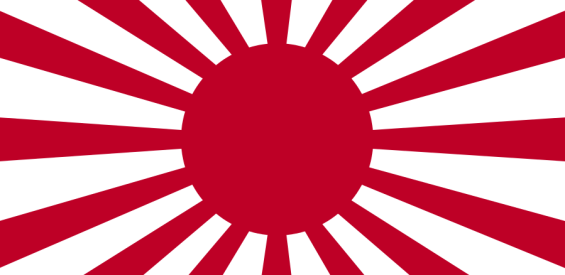
Now if we keep looking for symbols, we can certainly find them. Take the blue sand of the arena itself. If Carson represents the USA, and the alien represents Japan, would the pervasive blue sand not therefore be representative of the Pacific Ocean? Of course it would!
Next, check out the original story, available in an unabridged audiobook version created by Rick Jackson (aka The Time Traveler) for The Time Traveler Show podcast…
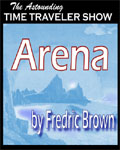 Arena
Arena
By Fredric Brown; Read by William Spurling
1 |MP3| – Approx. 1 Hour [UNABRIDGED]
Podcaster: The Time Traveler Show
Podcast: July 23rd, 2006
The mysterious Outsiders have skirmished with Earth’s space colonies and starships. Their vessels are found to be faster and more maneuverable, but less well armed. Survivors of these encounters are able to provide little other information about the enemy. Fearing the worst, Earth builds a war fleet. Sure enough, scouts report a large armada approaching the solar system. Earth’s defenders go to meet them. All indications are that the two fleets are evenly matched. First published in the June 1944 issue of Astounding Science Fiction magazine.
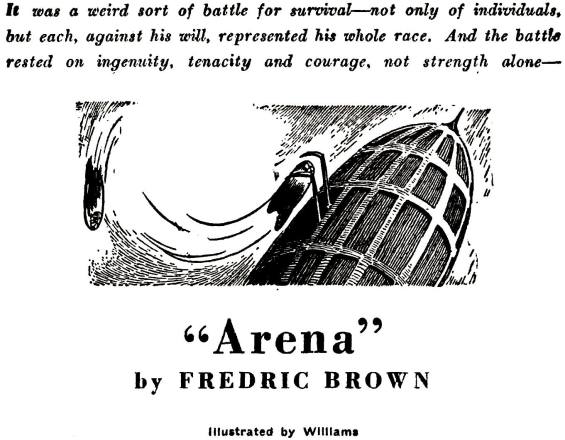
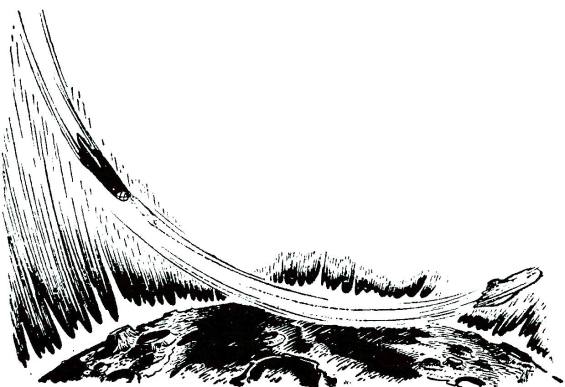
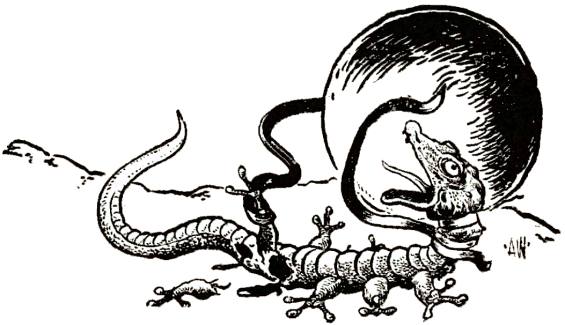
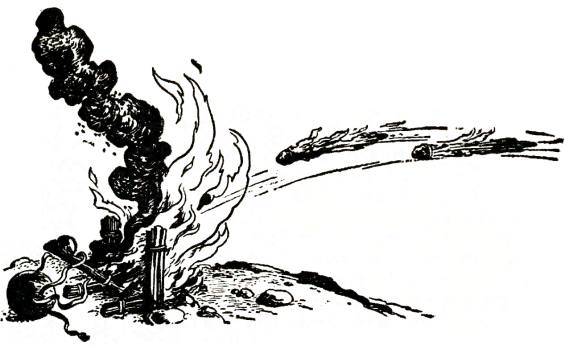
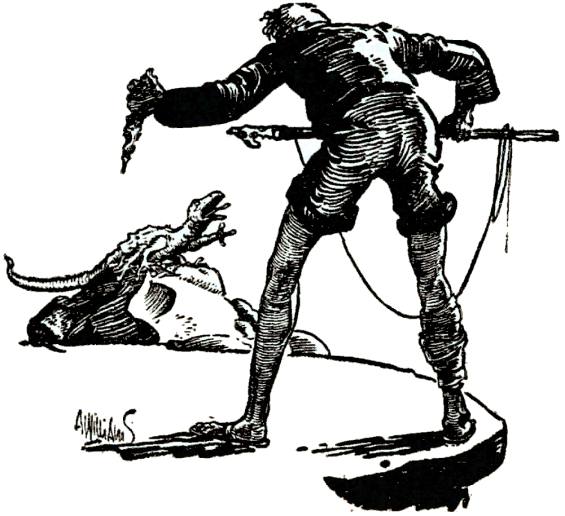
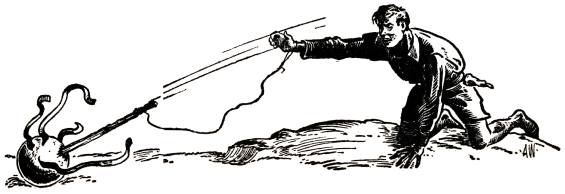
In the comics department, there was a 1976 Marvel Comics magazine adaptation in Unknown Worlds of Science Fiction. Of it, Pete Doree (Of The Bronze Age Of Blogs) sez:
“Arena is one of my all-time favourite one-off comic stories, from Roy Thomas’ short-lived Worlds Unknown. Rascally Roy obviously liked it as much as me, as he reprinted it in the last issue of his b/w follow up Unknown Worlds Of Science Fiction. What I like about it is that it’s storytelling pared right down to the bone: One man. One monster. Winner takes all. It’s that simple, and that elegant. The set up is so primal that you’re practically dealing in archetypes. Plus you get the amazing pairing of John Buscema & Dick Giordano on art. It was adapted from a story by Frederic Brown, a great old school sci-fi writer.”
And, check out this editorial from Marvel Comics issue 4 of Unknown Worlds:
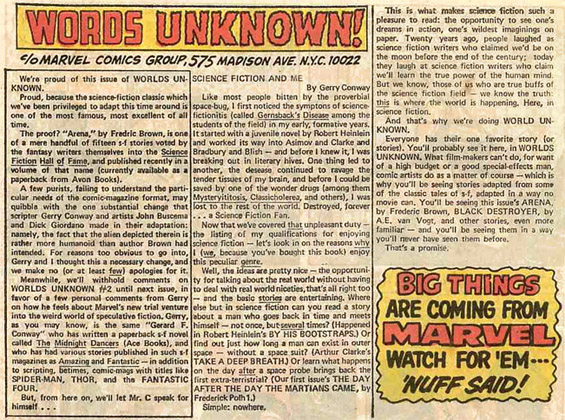
Keeping with the art theme, there’s Boris Vallejo’s depiction from the March 1977 Starlog Magazine printing of Arena (more on that |HERE|):
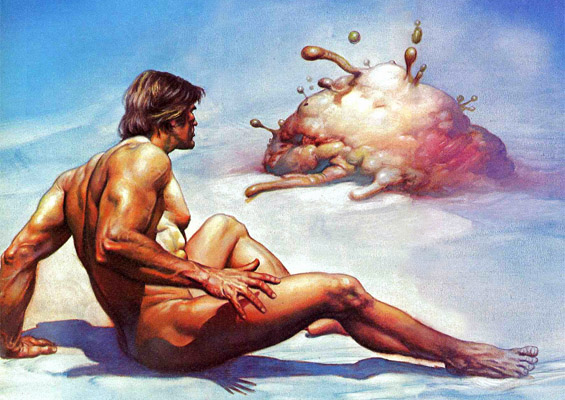
TV, movies and other SF authors also seem to have taken inspiration or paralleled Fredric Brown’s Arena too:
Star Trek: Arena:
Outer Limits: Fun And Games:
The one man against one man theme, as developed in Arena, departed the SF genre entirely with the 1968 film Hell In The Pacific. The movie stars Lee Marvin and Tishiro Mifune as shot down American and Japanese fighter pilots who make WWII more personal.
The meme sunk to its lowest low with the frighteningly awful (and least faithful) variation in “The Rules Of Luton” episode of Space 1999.
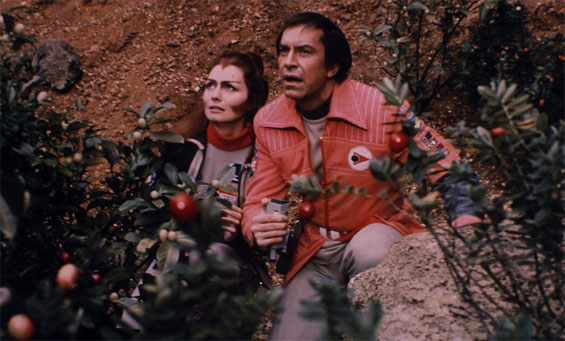
The meme transmogrified back into a man vs. alien confrontation for Barry B. Longyear’s 1979 novella Enemy Mine. Willis Davidge, a human fighter pilot, is stranded along with Jeriba Shigan, a Drac, on a hostile alien planet foreign to them both.
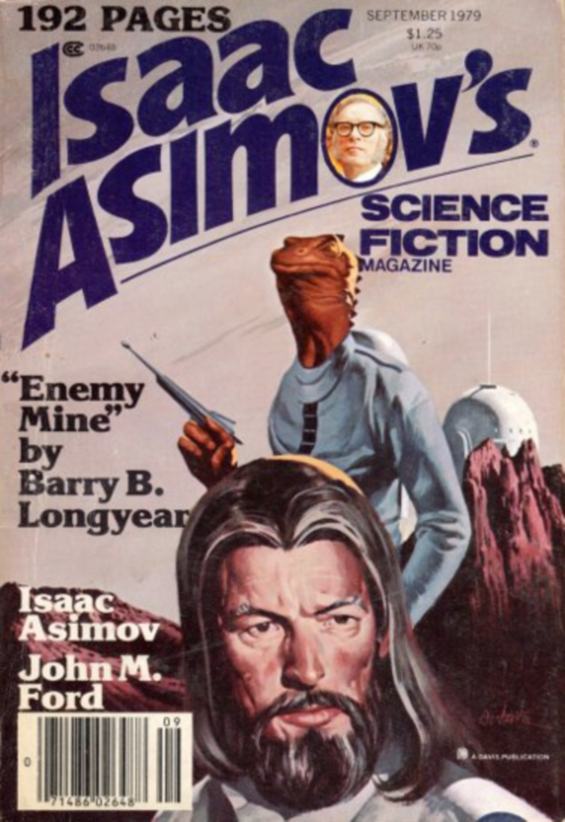
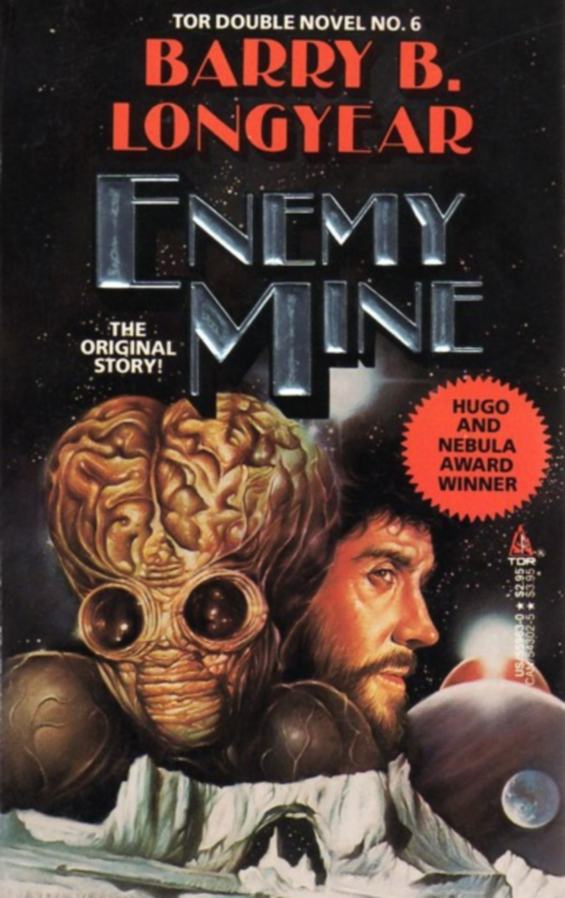
The movie version of Enemy Mine, 1985, magnified the allegory with a theme of racial brotherhood.
In 1989, Star Trek: The Next Generation first adopted the idea for an episode entitled “The Enemy“.
Another variation, in 1991, in an episode of Star Trek: The Next Generation called “Darmok” nearly eliminates the physical conflict, replacing it with an intellectual puzzle on the difficulties of communication.
Star Trek: Enterprise, in an attempt to recycle every previous Star Trek series plot, did their own take with the 2003 episode entitled Dawn:
Update:
David Schleinkofer illustrated the Reader’s Digest Edition of Arena in the early 1980s:
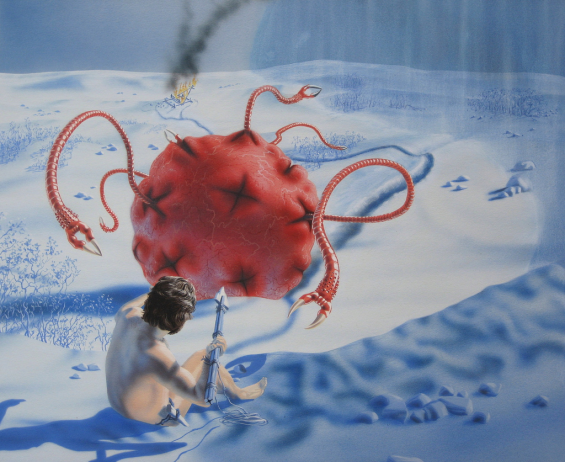
Posted by Jesse Willis
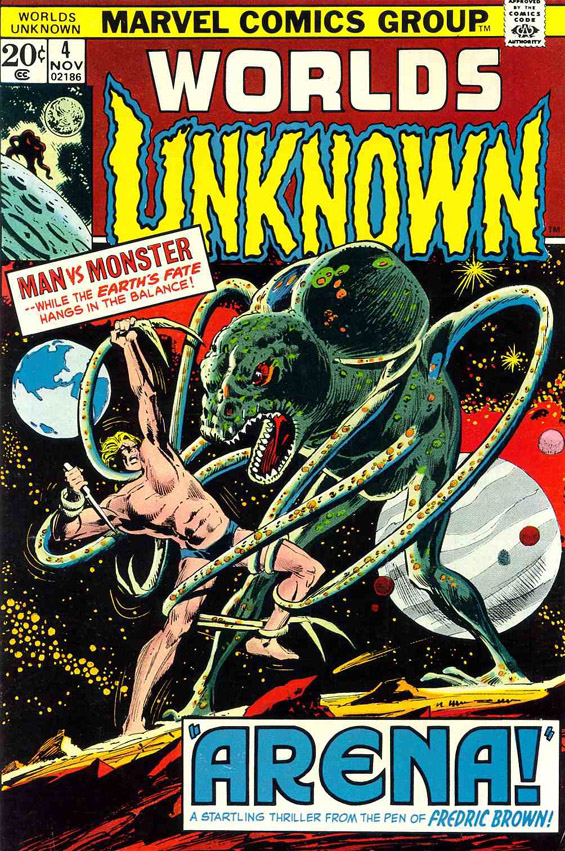


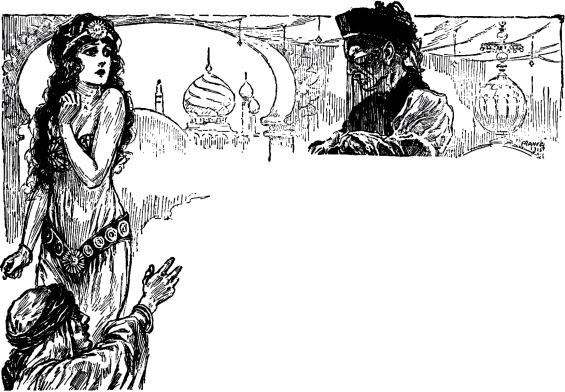

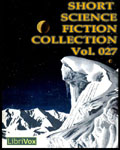
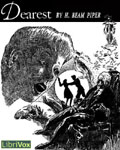
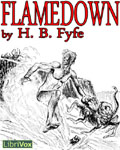
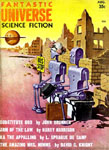
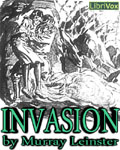
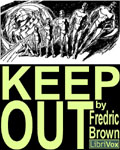
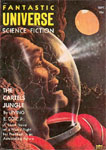 The Long Voyage
The Long Voyage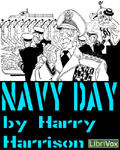
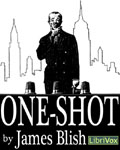
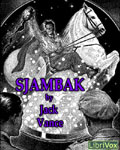
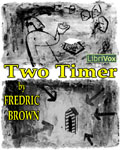
 Here’s a new collection made possible by volunteer narrators reading public domain Science Fiction (found at Project Gutenberg). In addition, three specific volunteers made the collection as a whole possible:
Here’s a new collection made possible by volunteer narrators reading public domain Science Fiction (found at Project Gutenberg). In addition, three specific volunteers made the collection as a whole possible: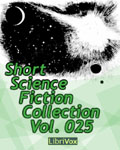
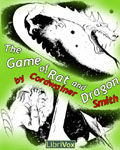
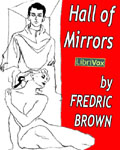
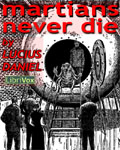
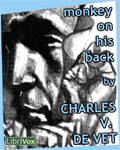
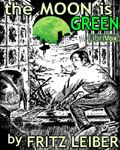
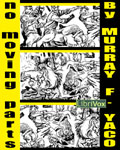
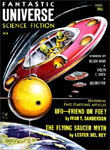
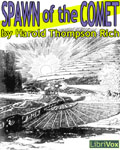
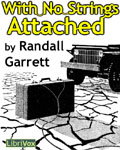
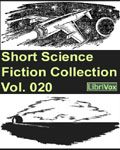
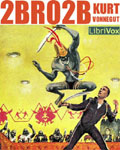
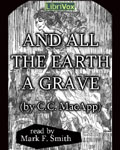
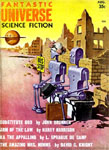
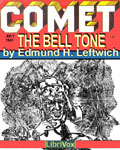
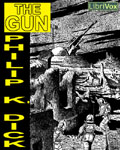
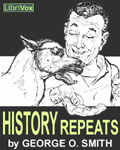
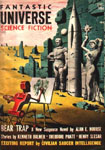
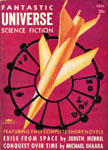
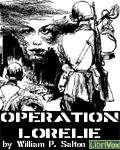 Operation Lorelie
Operation Lorelie